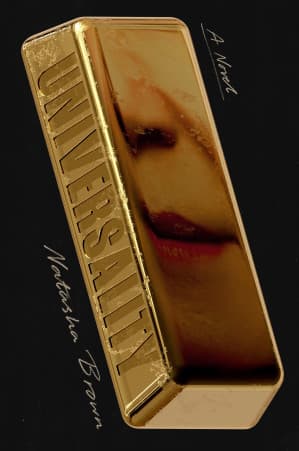Objectivity is a costume
Aya’s editor uses track changes to literally erase words like ‘plunder’ and ‘stolen.’

Book summary
by Natasha Brown
Natasha Brown skewers empire, tech, and language in a polyphonic novel about a gold-bar heist.
Topics
Read Part One (Investigation) quickly to feel the media chase, flagging every time Aya is edited or interrupted. Slow down for Part Two (Testimony) and use Readever’s split-pane notes to pair each speaker with their institutional stake. For Part Three (Manifesto), switch to focus mode and let the AI coach surface rhetorical devices—an easy way to study Brown’s sentence-level power.
Things to know before reading
A gold bar is stolen from the British Museum, activists livestream the heist, and a Nigerian-British journalist named Aya Kane is sent to write the definitive feature. Her editor expects a digestible narrative; online audiences demand revolutionary clarity. Aya instead uncovers overlapping testimonies from the thief, the security guard, junior curators, and colonial historians, each insisting on their own “universality.” Brown fractures the novel into interviews, memes, code repositories, footnotes, and a searing direct address to readers complicit in empire’s myths.
Brown interrogates who gets to claim universality when empire built the rules.
Aya’s editor uses track changes to literally erase words like ‘plunder’ and ‘stolen.’
Activists livestream the heist, yet algorithms throttle their reach as soon as advertisers complain.
Museum trustees insist Greek, Nigerian, and Jamaican claims are ‘all the same’—a dodge to keep the gold.
Open Readever's reader to highlight passages, ask the AI companion questions, and keep exploring without paying a cent.
Universality expands the formal experimentation of Assembly into a high-wire act about who controls narrative. It’s short but information-dense, perfect for Readever readers who love tagging passages for craft study and political debate.
Key idea 1
Aya’s editor uses track changes to literally erase words like ‘plunder’ and ‘stolen.’
The newsroom sequences show how institutional tone policing sanitizes history. Aya notices that each deletion maps onto donors’ sensitivities, not accuracy, reminding readers that ‘neutral’ reporting often props up power.
Remember
Key idea 2
Activists livestream the heist, yet algorithms throttle their reach as soon as advertisers complain.
Brown shows how tech optimism collides with platform capitalism. Even revolutionary spectacle becomes ad inventory, forcing organizers to hack attention economies.
Remember
Key idea 3
Museum trustees insist Greek, Nigerian, and Jamaican claims are ‘all the same’—a dodge to keep the gold.
The titular concept becomes a weapon: if all cultures are universal, none can demand restitution. Aya’s final manifesto re-centers specificity, arguing that justice requires naming who took what, when, and why.
Remember
"Readers who highlighted every page of Assembly and want Brown’s voice amplified." - "Journalists, curators, and activists working inside compromised institutions."
Tech observers curious about how content moderation intersects with protest.
Natasha Brown’s debut, Assembly, was shortlisted for every major UK prize. A former Goldman Sachs software engineer, she brings systemic thinking to fiction about race, class, and power. Universality cements her as one of Britain’s most formally daring novelists.
Build your personalized reading stack
"Unlock the Universality fact-pack to see inline citations for every historical reference." - "Join the Reparations reading path that pairs this novel with nonfiction by Dan Hicks and Saidiya Hartman."
Export your annotated manifesto at the end—Readever formats it as a zine you can share with your book club.
Sign in to Readever to keep reading with AI guidance, instant summaries, and synced notes.
Start reading Universality for free and unlock personalized book journeys with Readever.